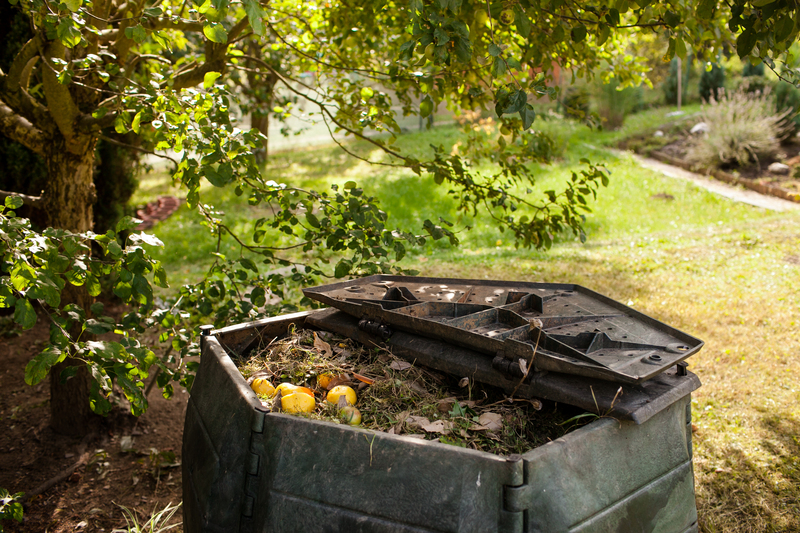Steps to Deal with Uncollected Bins Efficiently
Uncollected bins can be a major headache for residents and city officials alike. They can lead to unsightly neighborhoods, health hazards, and general inconvenience. In this comprehensive guide, we'll discuss various strategies to manage uncollected waste containers effectively.
Why It's Important to Address Uncollected Bins
Addressing uncollected bins promptly ensures our communities remain clean and hygienic. Piling waste can attract pests, create unpleasant odors, and impact the well-being of residents. Furthermore, improper waste management could lead to environmental issues, including pollution and increased carbon emissions.

Understanding the Root Causes of Uncollected Bins
Before we can efficiently tackle the issue, it's crucial to understand why bins might remain uncollected:
- Service Delays: On occasion, waste collection services may experience delays due to breakdowns, staff shortages, or inclement weather.
- Overfilled Bins: Bins that exceed their capacity might be overlooked by collection teams due to safety regulations.
- Misplacement: Sometimes, bins are not placed in the designated areas for collection, causing them to be skipped.
- Contamination: Incorrectly segregated waste is often left behind, necessitating re-segregation before collection.
Immediate Actions to Resolve Uncollected Garbage Bins
Once you've identified the reason for the uncollected bins, you can take immediate steps:
Contact Local Waste Management Services
If a bin has been left uncollected, whether it's due to oversight or unavoidable delays, it's advisable to reach out to your local waste services. Most waste management companies have dedicated customer service lines specifically for resolving such issues promptly.
Ensure Proper Bin Placement
Always ensure bins are placed in the correct location on the designated collection day. Clear access to bins is vital for waste collectors to efficiently do their jobs.
Prevent Overfilling of Bins
Overfilled bins can often lead to waste being left behind. Regular disposal of refuse and ensuring the bin lids close properly can prevent such issues. Consider coordinating with neighbors for shared disposal services if necessary.
Long-term Strategies for Efficient Waste Bin Collection
In addition to immediate actions, implementing long-term strategies can greatly enhance how efficiently waste is managed in a community.
Community-Wide Waste Management Initiatives
- Collaborated Efforts: Encouraging neighbors to collaborate and share resources can lead to more efficient collection and reduced waste production.
- Local Workshops: Local authorities can host workshops and seminars on sustainable waste habits and proper disposal techniques.
- Enhanced Recycling Practices: Establish more user-friendly recycling programs with clear guidelines.
Technological Solutions for Waste Management
Technology can revolutionize how we manage waste:
Smart Bins
Many cities are adopting smart bin technology. These bins feature sensors that notify waste management services when they are full and need collection, avoiding unnecessary trips and optimizing routes.
Mobile Applications
Applications designed for tracking waste collection schedules, updates on delays, and user complaints can foster systematic communication between residents and collection agencies.
Encouraging Responsible Waste Disposal Habits
It's not just about the bins themselves, but how communities use them:
Educating the Public
Continuous public education regarding the importance of segregation, recycling, and minimizing waste can lead to more responsible disposal habits.
Reward Programs
Incentive-based systems to promote waste reduction and proper trash disposal can significantly impact public participation. Rewards, whether symbolic or tangible, for communities who display excellent waste disposal habits can uplift collective community standards.

Monitoring and Feedback Systems
Structured feedback systems allow residents to report issues and suggest improvements:
Open Communication Channels
Establish direct lines of communication with waste management providers, enabling residents to give real-time feedback.
Regular Surveys
Conduct regular surveys to gain insights into public sentiments and areas needing improvement.
Conclusion
Dealing with uncollected bins doesn't need to become an insurmountable problem. By adopting the strategies discussed, from understanding the root causes to leveraging technology and encouraging community initiatives, we can create neighborhoods that are cleaner, healthier, and more productive. Collaborative efforts, both on the individual and administrative levels, are imperative for effective waste management.
Ultimately, addressing the issue is more than just about dealing with waste; it's about enhancing the quality of life and ensuring sustainable future practices.